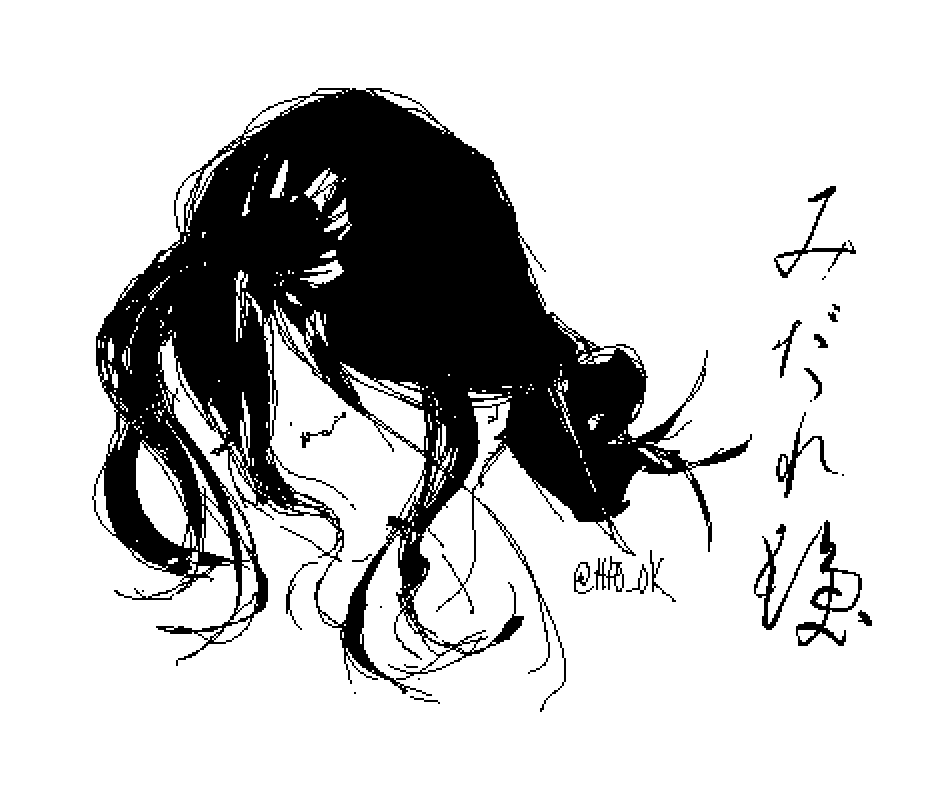

The most complete English translation of the Midaregami is by Sanford Goldstein and Seishi Shinoda. It begins with the fifth poem from the collection. As far as I know, the first, third, and fourth poems of the Midaregami have never appeared in English. Here they are for you today. (Plus my own translation of the second and fifth poems because I like them.)
In 1901, formal Japanese poetry had stagnated. The poets of the Imperial Poetry Bureau were judged by how closely they stuck to poetic tradition. Vocabulary was required to be taken from the 2000-or-so words that existed in the Kokinshu, a historical anthology of brilliant poems. They produced poetry by doing Mad Libs.
These poems didn't even suck. They stuck so closely to the Kokinshu that, if you give me a poem, I can't tell if it's a Kokinshu original or a remix from 800 years later.
That year, Akiko Yosano, age 23, released a 399-poem collection titled みだれ髪 (Midaregami, "Tangled Hair"). The Midaregami was immediate, personal, and often explicit. Nearly all of the poems are, in some way, love poems. She stuck precisely to classical poetic forms but wasn't limited to the words in the Kokinshu. Her writing used the imagery of formal poems—seasons, places, flowers—to describe longing, cynicism, joy, lust, and pettiness.
Imagine what you can say about bodies with a poetic language that was developed to talk about missing your hometown.
Imagine what you can say about desire with the word rain.
Poets hated it. It was un-buddhist, obscene, and feminist.
But after hundreds of years of stale poetry, it was alive.
Each poem in the Midaregami is in a poetic form called tanka. Tanka have a 5-7-5-7-7 syllable structure, though many poems drop or add syllables for poetic effect, like skipping a metrical foot in a sonnet. (If that structure seems familiar, it's because tanka and haiku share a common poetic ancestor.)
I've tried to write these plainly, translate literally, and not over-poeticize them. I think they stand on their own.
夜 の 帳 に さ さ め き 盡 き し 星 の 今 を 下 界 の 人 の 鬢 の ほ つ れ よ | In the curtain of night the moment of a murmuring exhausted star by the hair of those of the lower world frays |
歌 に き け な 誰 れ 野 の 花 に 紅 き 否 む お も む き あ る か な 春 罪 も つ 子 | Poems tell: who would deny the wildflowers their crimson? how exquisite! girl with spring sins |
髪 五 尺 と き な ば 水 に や は ら か き 少 女 ご こ ろ は 秘 め て 放 た じ | Five lengths of hair if unbound in water are tender— this girl's heart is hidden, and will never be released |
血 ぞ も ゆ る か さ む ひ と 夜 の 夢 の や ど 春 を 行 く 人 神 お と し め な | Blood, after all, trembles the piled-up single nights the inn in those nights' dreams— you people, going to spring: don't scorn this God |
椿 そ れ も 梅 も さ な り き 白 か り き わ が 罪 問 は ぬ 色 桃 に 見 る | Even the camellia, even the plum blossoms are white— I look to peach colors that don't ask about my sins |